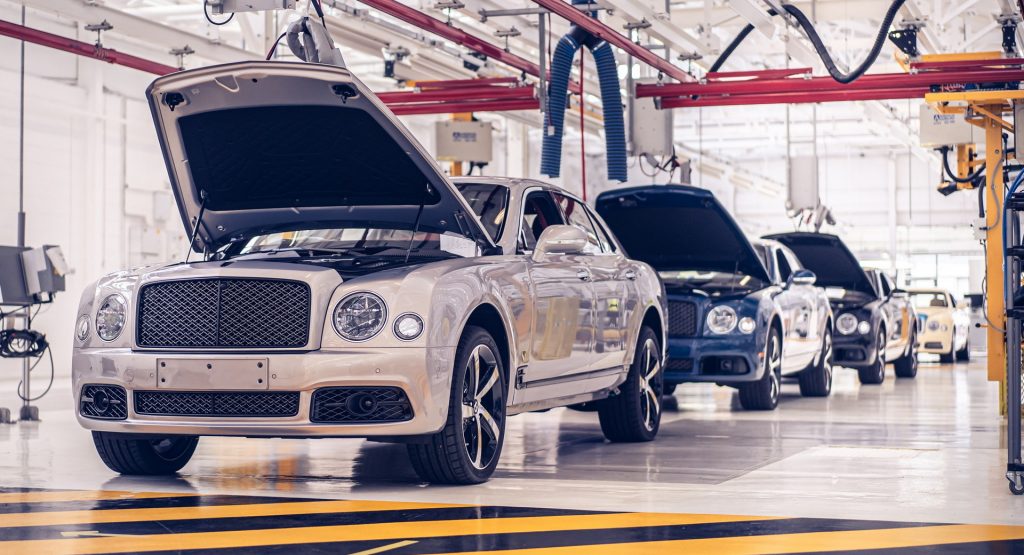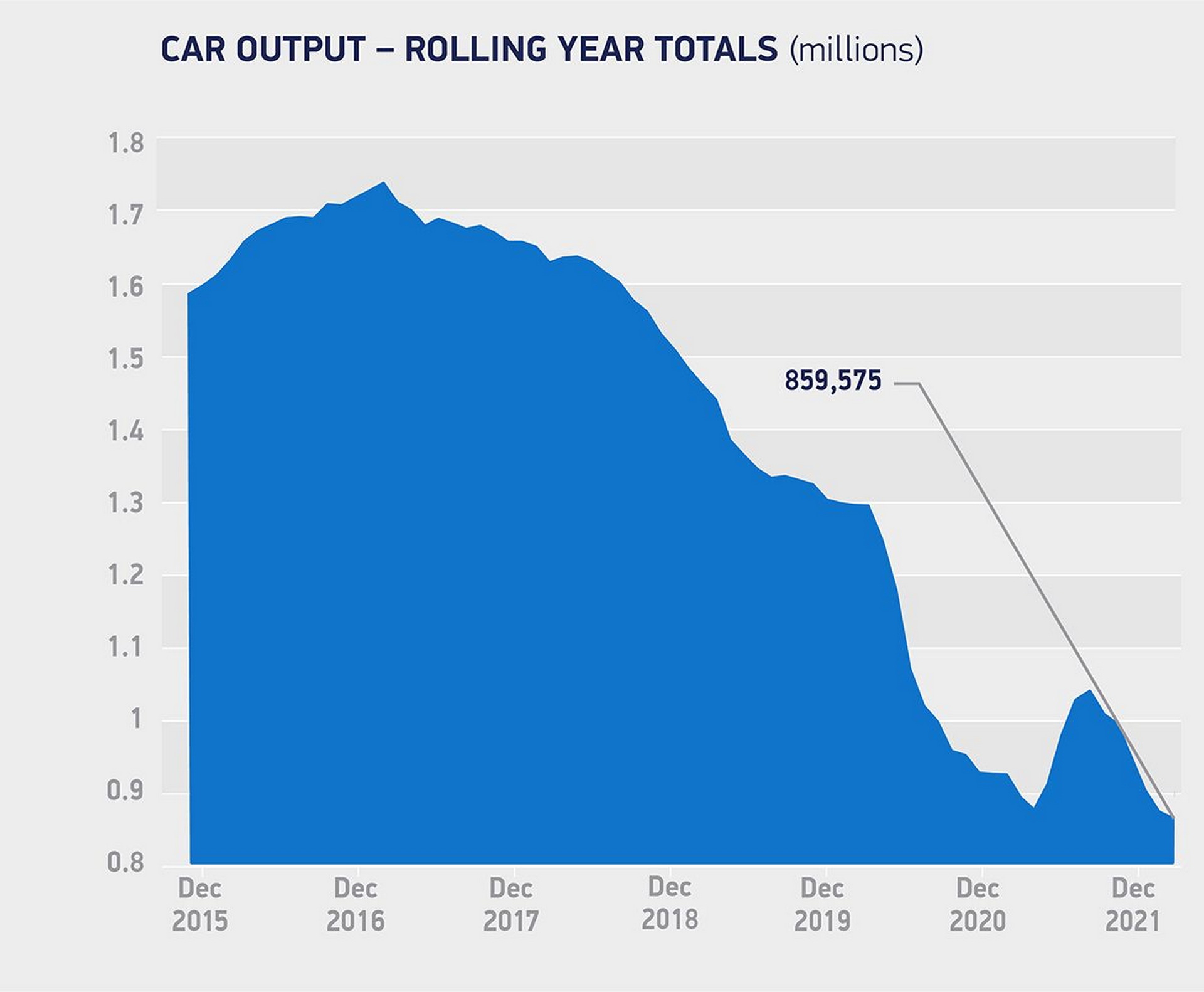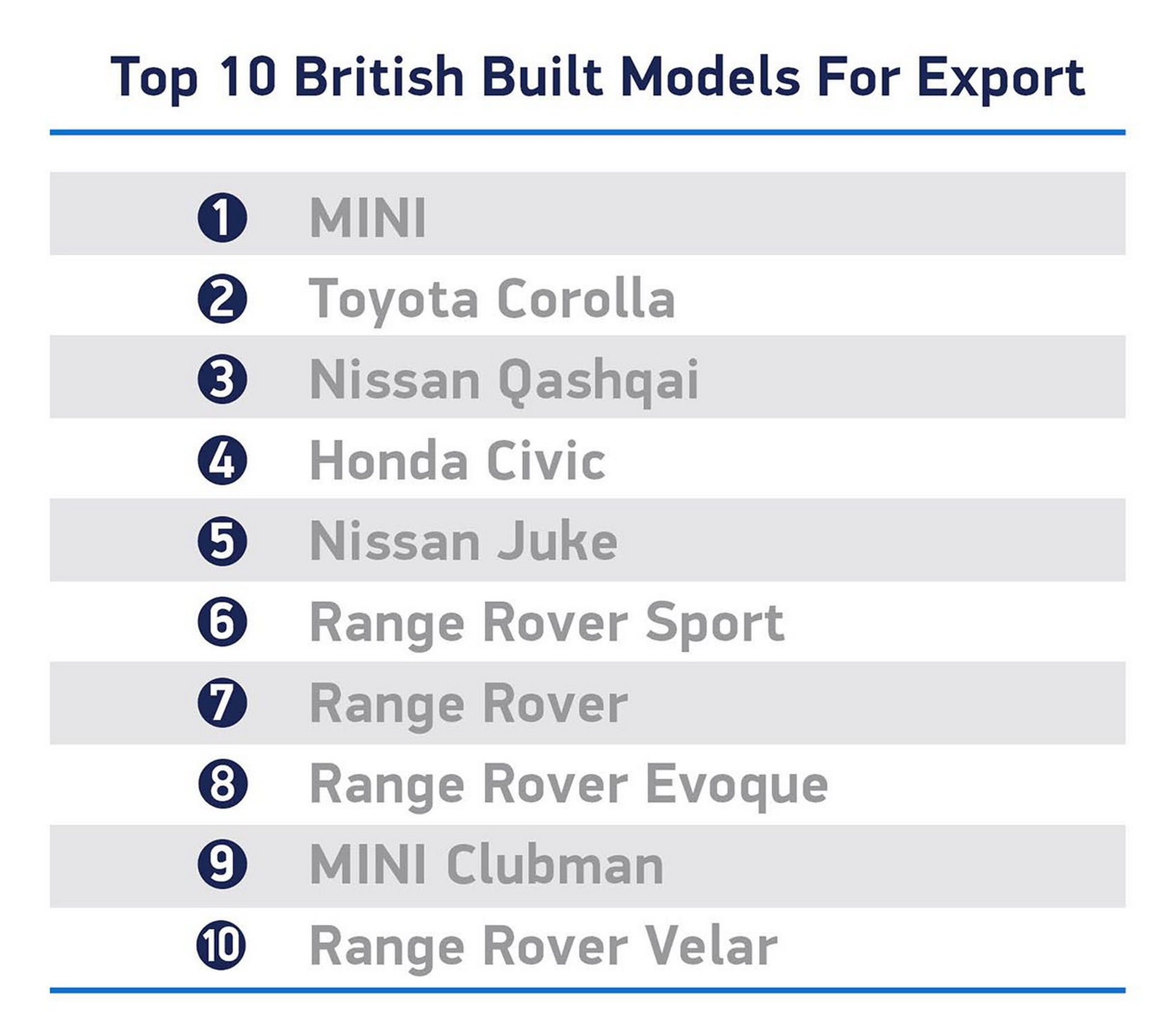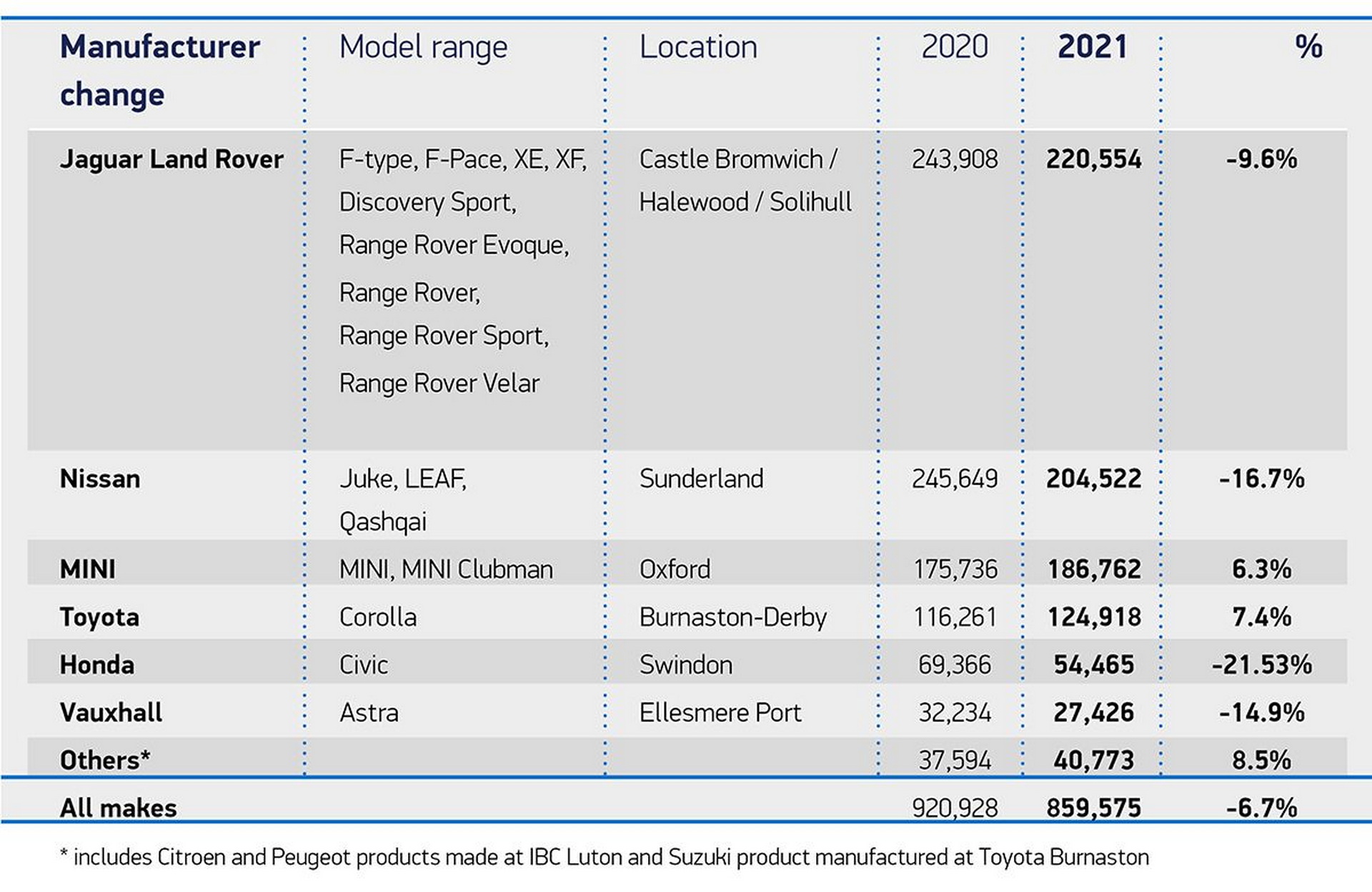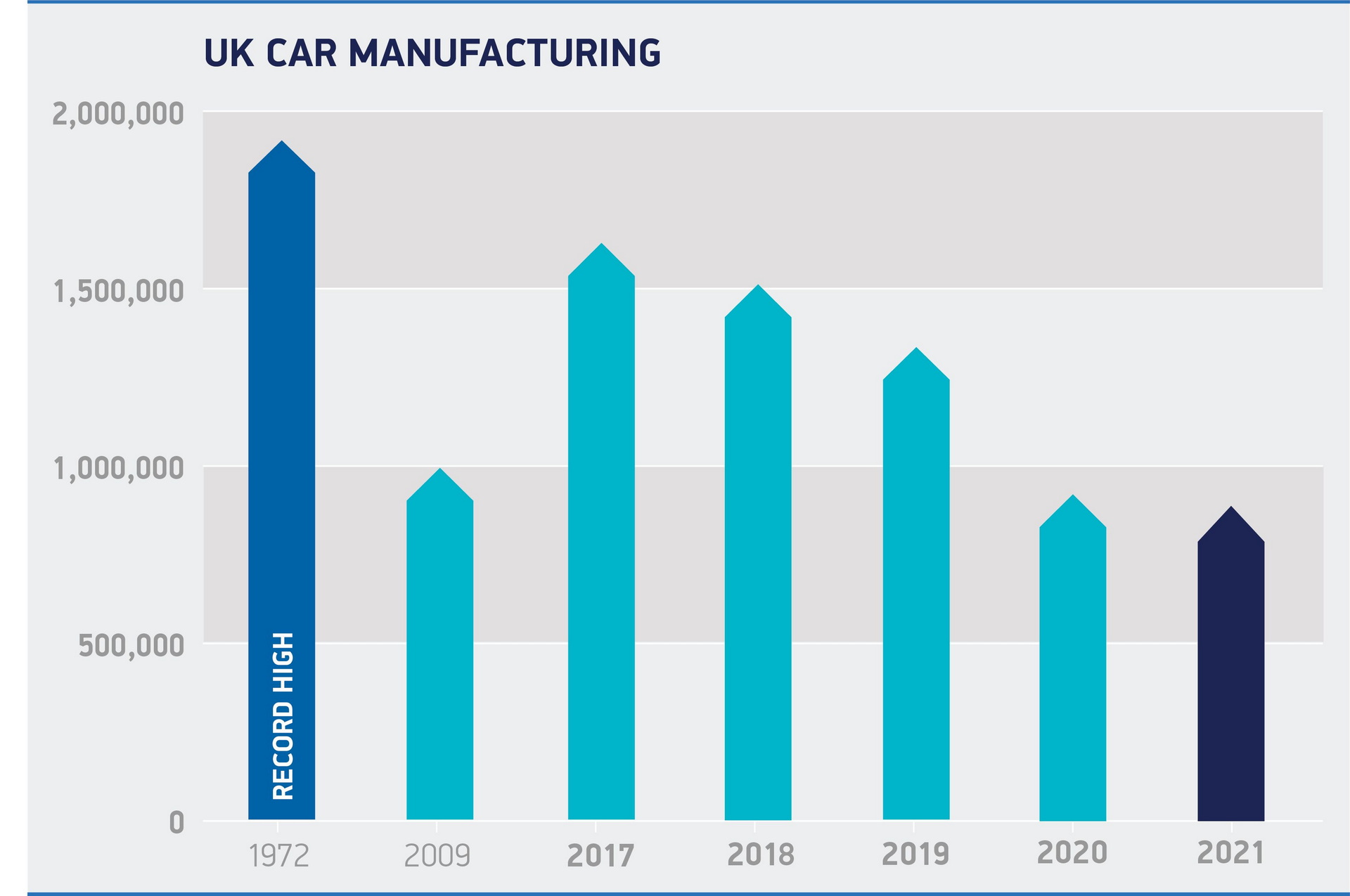The United Kingdom produced just 859,575 vehicles in 2021, according to new figures released by the Society of Motor Manufacturers and Traders (SMMT). That makes last year the worst on record since 1956, in terms of production.
Output was severely affected by the semiconductor shortage and the closure of a major Honda manufacturing location in July, which alone accounted for a quarter of the annual decline. Production was so badly impacted that it was down even compared to 2020, which itself was down 34 percent, as compared to the pre-pandemic 2019.
“2021 was another incredibly difficult year for UK car manufacturing, one of the worst since the Second World War which lays bare the exposure of the sector to structural and, especially, Covid-related impacts,” said Mike Hawes, SMMT CEO. “Despite this miserable year, there is optimism.”
Indeed, although overall production was down, the U.K. did produce more electric and plug-in electric vehicles than ever before. Plug-in hybrid vehicle output rose by an impressive 16.4 percent, while the production of battery electric vehicles rose a stunning 72 percent last year. Together, they accounted for more than 26 percent of all cars made in 2021.
The U.K. was still highly dependent on exports, though, and those suffered in 2021. Last year, 705,826 of the 858,575 vehicles the U.K. produced were for export and that was 5.8 percent lower than in 2020. Production for the domestic market, meanwhile, was down more than 10 percent.
Most of the U.K.’s exports are destined for Europe, as you might expect, and the signing of the Trade and Cooperation Agreement has led to greater investments in several ports and increased industry confidence.
“With Brexit uncertainty largely overcome with the TCA deal, investments have been unleashed, most of which will help transform the sector to its zero-emission future,” said Hawes. “This is a vote of global confidence in the UK but must be matched by a commitment to our long-term competitiveness.”
As a result, the outlook for 2022 looks better for the U.K., and production is expected to rise to more than 1,000,000 vehicles provided the semiconductor chip situation continues to improve.




